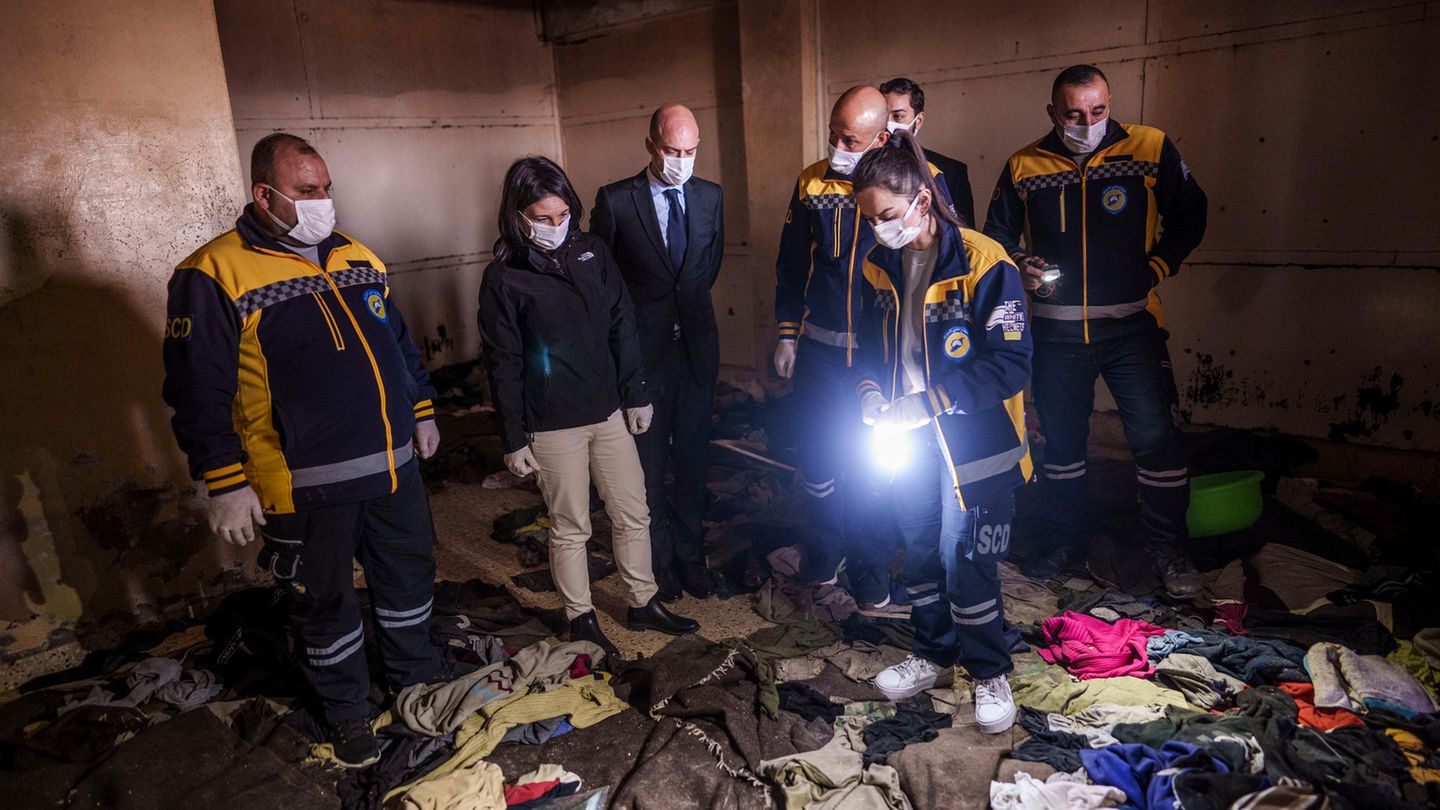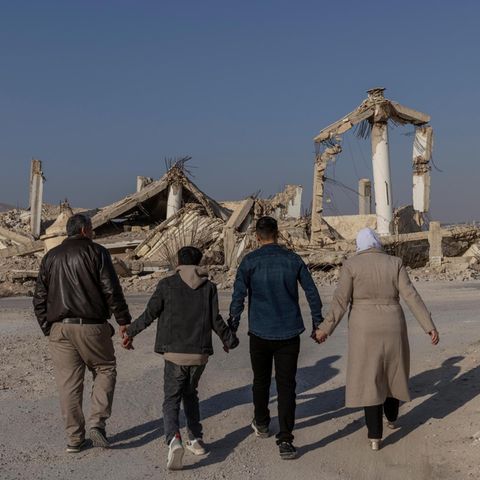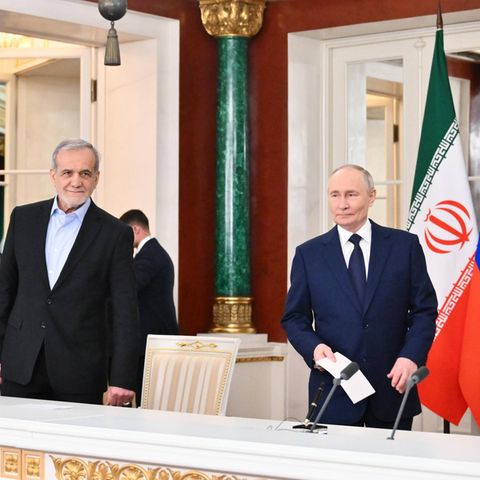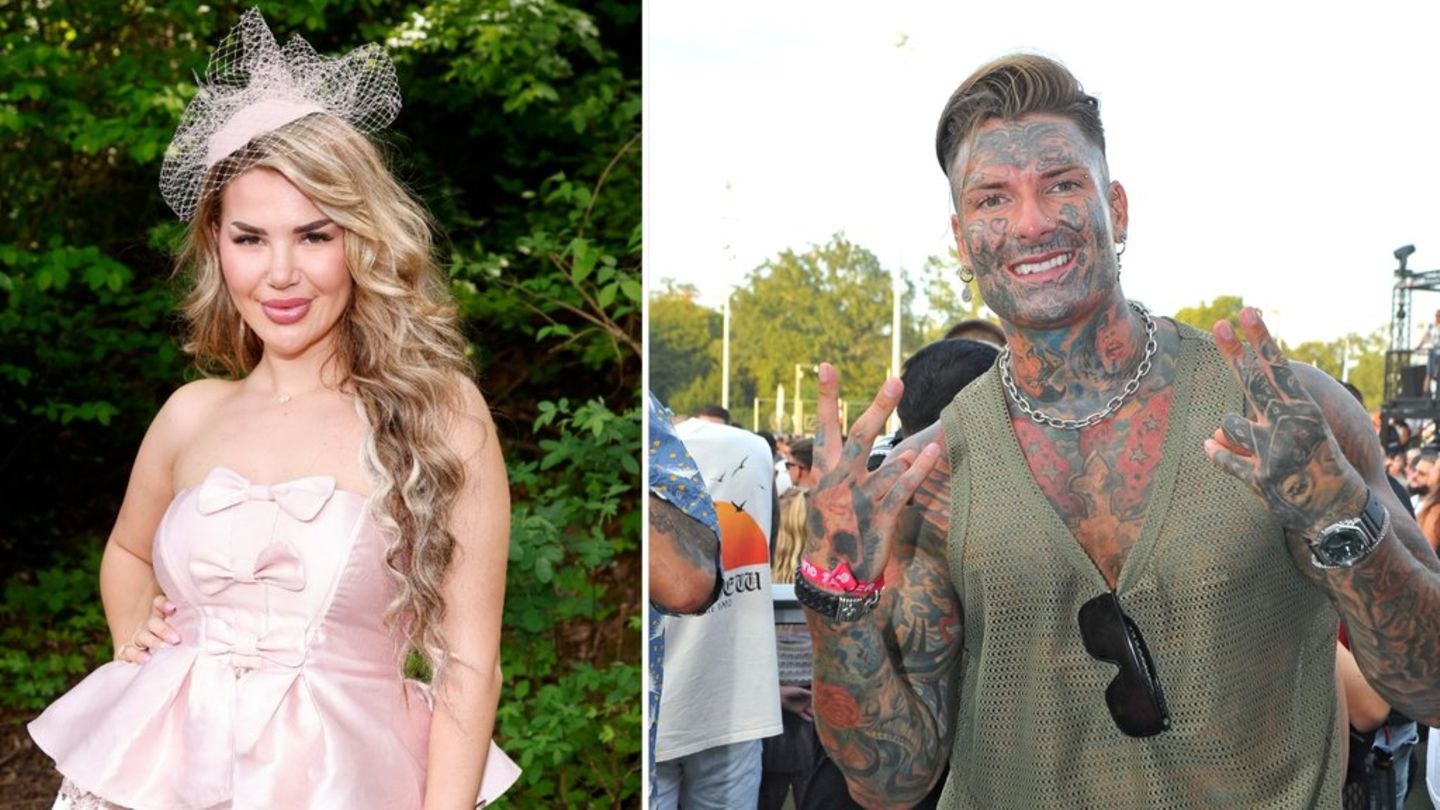German representative for Syria
“Prime Minister al-Sharaa is a person in the process of shedding his skin”
Copy the current link
State Minister Tobias Lindner personally experienced the new rulers in Syria. A conversation about Islamists in suits and Germany’s future role in Damascus.
Mr. Lindner, how do you actually establish communication channels with an Islamist militia like Hai’at Tahrir ash-Sham (HTS)?
After the German embassy was closed in 2012, we continued to be in contact with actors in the region through a working group. We knew who we could reach and how. Also via third parties. It’s always a balancing act: when you establish official channels, you add value to people. But assume that it was also possible to contact Ahmed al-Sharaa through this network…
… the HTS boss and Syria’s new ruler. A man who used to fight for Al-Qaeda and today receives state guests in a suit. How should you imagine contact with him? Is there a digital jour fixe between the Federal Foreign Office and HTS?
The Foreign Office now has a regular, but not yet complete, presence in Damascus and therefore also has communication channels into the HTS. One month after the fall of Assad, state structures are now being formed there. When we first had a team in Damascus in mid-December, it was still clear that we could talk to al-Sharaa himself. Now he has advisors around him who tell him: You are the head of state. Only talk to people at your level. There are now protocol chiefs and office managers around him. This makes collaboration possible, as we also know it with other countries.
To person
Tobias Lindner from the Greens is Minister of State in the Foreign Office and has been the German federal government’s Syria special coordinator since December 2024.
A few days ago you visited al-Sharaa with Foreign Minister Annalena Baerbock then experienced it personally for the first time. What was your impression?
We spoke for over two hours. He is a person in the process of molting – from militia leader to politician. The exciting question now is: How far does this change go? Not just in what he says. But also in what he does. And what does the support look like for him? When he says that a transitional government must take as many Syrians as possible into account – men, women, Druze, Kurds, Alawites and so on – then that also implies that he ultimately will not be able to please all of his supporters. This is an area of tension.
Are the rebels pulling together? In his march on Damascus al-Sharaa still had a broad alliance of very different groups behind him.
Nope. We have now arrived at a new phase in Syrian history. Assad as a common enemy has united the militias. Now that he is gone, the task is to form joint Syrian security forces from these militias.
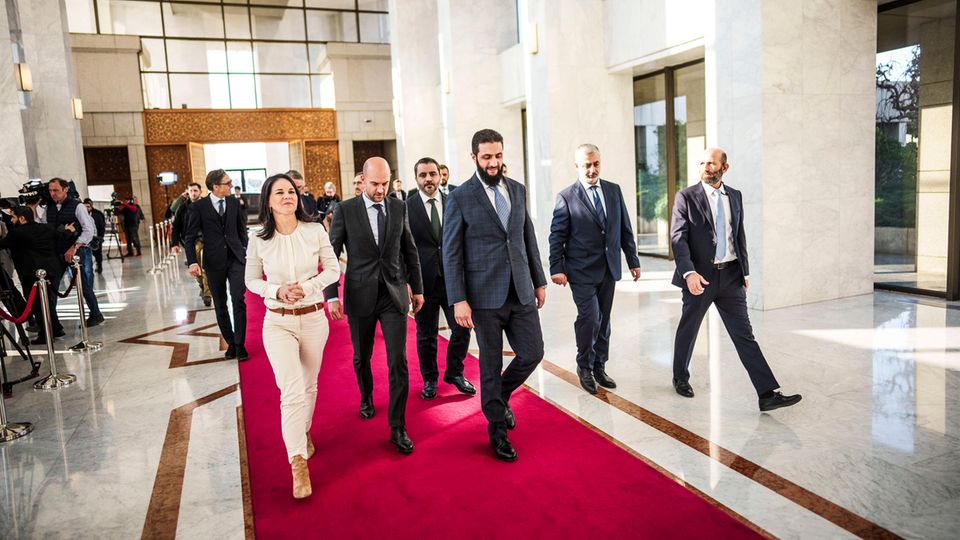
Buy al-Sharaa’s transformation from Islamist to conciliator Syria away?
We recognize what he has said publicly and also to us. But in the end we will judge him by his actions. He has committed himself to the inclusive transition process and the role of women in Syrian society. The litmus test will be the national dialogue conference he plans to convene. The preparatory committee should consist of six or seven people, including two women. If that is true, it is a development in the right direction.
So no Taliban light, as many fear?
I’m always careful with comparisons. It is up to the HTS to prove that they want to transform themselves from an Islamist militia into a political factor. Of course, we have heard of the reports of human rights violations in HTS-controlled areas in the past. We also noted that the HTS tried to establish state structures in Idlib and ensure a certain basic provision of public goods.
The new leadership says elections could not take place for another four years. Isn’t that too late?
Of course it has to happen as quickly as possible. But in Germany too, it took from 1945 to 1949 until we had nationwide elections and a constitution. On the other hand, there were state-level elections in the four years in between. It requires a step-by-step process with verifiable intermediate steps.
One image in particular remains in your memory from your trip to Syria: al-Sharaa refusing to shake the hand of the German Foreign Minister.
We were fully aware in advance that there would be no handshake. We behaved accordingly and agreed with the French in advance (Baerbock met al-Sharaa together with the French Foreign Minister, editor’s note). By the way: At the end of the conversation he tried to shake her hand. The minister just didn’t notice it out of the corner of her eye. A few days later in Riyadh there was a handshake with the Foreign Minister – in front of cameras. So if you really want to stick with an image like this: it shows how quickly things can change.
The German embassy in Damascus stood empty for almost 13 years. When will it be able to reopen?
There are many practical things that need to be solved first. We have to check whether the building has been bugged and still meets today’s security requirements. There are monitors, keyboards and telephones on dusty tables – everything is as it was in 2012. An important question is also the power supply. There is electricity in Damascus for around two hours a day. As we looked around the embassy building, we walked through the rooms with cell phone flashlights. At some point the moment will come when we will raise the federal service flag again in Damascus. But I can’t give you an exact date.
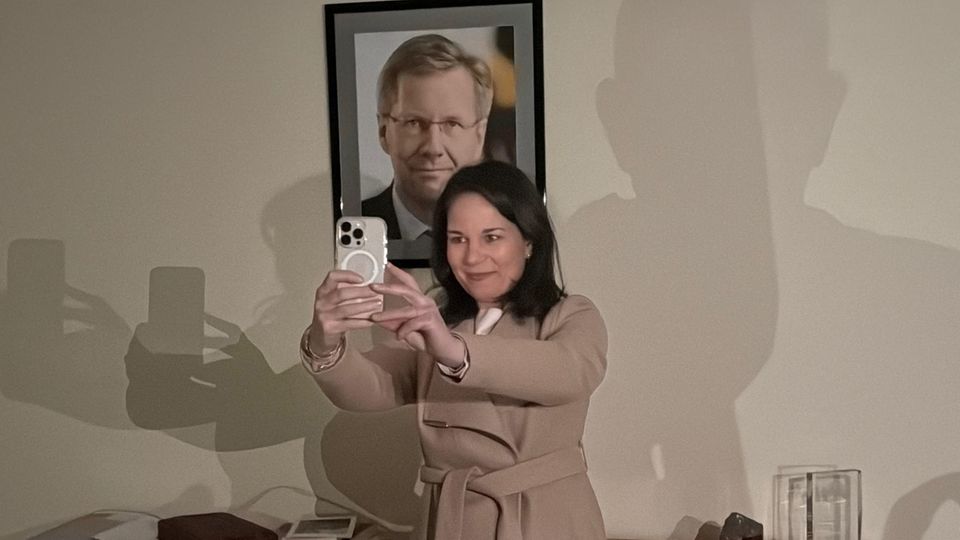
Israel is carrying out air strikes on the Golan Heights, Turkey is fighting Kurds in northeastern Syria, and former Assad allies Iran and Russia will not want to give up their interests just like that. How do you prevent the country from becoming a plaything of foreign powers again?
We as the federal government cannot give anyone a guarantee. We practice intensive travel and telephone diplomacy. The Federal Minister recently met several times with the Turkish Foreign Minister for intensive exchanges.
Turkey currently seems more like a destabilizing factor than a reliable partner.
I can partially understand some of Türkiye’s security interests. Of course, the Kurdish terrorist organization PKK is no longer allowed to use Syria as an operating area for attacks on Turkish territory. My impression is that Turkey prefers to act in an international concert – together with its Arab neighbors as well as the EU and NATO partners. But we are equally concerned about the Turkish military presence on the Syrian border in the Kobane area. We have made it very clear that such things can of course always have an impact on the bilateral relationship.
It was the Kurds who, together with the USA, drove the Islamic State out of Syria. Now they are under pressure. In addition, President Donald Trump could withdraw the last 900 American soldiers. Will we see a resurgence of ISIS in Syria?
The danger exists. There must be no security vacuum now. The prisons in which many IS fighters are held must be controlled. All actors are very aware of this, including the United States, Iraq, which is now increasingly controlling the border in this area, and Ahmed al-Sharaa.
Through a long-term contract, Assad’s ally Russia still holds two strategically important naval bases on the Syrian Mediterranean coast. What will become of these bases?
It is cynical that Russia, of all countries, wants to refer to any treaties. In recent years I have not necessarily experienced Putin as a champion of rules-based international order. He has also waged war against the Syrian people with his support for Assad. Its bases serve as a base of operations for armed forces in the Mediterranean and thus directly affect our own security interests. Anyone who wants to have closer, resilient relationships with Germany and Europe must also take these interests into account.
Sounds like clear conditions for the HTS.
In the end, of course, the people there have to decide for themselves what exactly the future of their country can look like. But we have invested a lot politically in Syria. We continue to offer refuge and protection to hundreds of thousands of people in our country. We have been the largest bilateral donor of humanitarian aid to Syria in recent years. There is currently a chance that Syria will change for the better. We want to use this by participating in the reconstruction. At the same time, this is a lever through which we can influence the leadership in Damascus and make it clear: We can only get involved if certain conditions are met on site, including: respect for human rights, women’s rights, minority rights, good governance.
I am surprised by the debate about the return of refugees.
Reconstruction is hindered by international sanctions that were imposed during Assad’s time and could be quickly lifted now that he has fallen, right?
This is also a step-by-step process. Every sanction has a reason why it was imposed. Some, for example, are aimed directly at Assad’s accomplices. Of course they should stay. All sanctions will not end overnight. But we are taking a smart approach and, as the federal government, are advocating within the EU for the first sanctions relief to be implemented as quickly as possible so that reconstruction measures are possible.
You visited the notorious Saidnaja torture prison with Baerbock. Tens of thousands of Syrians served in Assad’s state administration or the military. Now there are isolated reports of lynchings. How will this country ever be able to grow together?
The HTS cannot simply continue with the same personnel that worked for Assad. At the same time, we want to avoid a situation like that in Iraq in 2003 – when the ruling Baath Party and its army were dissolved overnight and virtually all state structures collapsed.
So an amnesty?
It is up to the Syrians to decide whether one ultimately only pursues the big fish and whether there is an amnesty. But justice and reconciliation will not be possible without prosecution for human rights violations and war crimes. Time is running out. It is now important to secure evidence, also for us as the federal government. We already have some experience here, as there have already been court cases against Assad’s henchmen in Germany according to the principle of universal law.
Is Syria already safe enough for refugees to return?
I’m surprised by the debate. The question of whether people will return can only be the result of a Syria policy, not the beginning of it. Even in Damascus – the capital controlled for so long by Assad and his allies – we have seen outskirts marked by the destruction of war. In parts there was only electricity for two hours a day. The security situation remains volatile. The aim now is to improve the situation there so that the people in Syria can live in freedom and security and meet their basic needs. If that is the case, then the discussion about returning begins.
Source: Stern
I have been working in the news industry for over 6 years, first as a reporter and now as an editor. I have covered politics extensively, and my work has appeared in major newspapers and online news outlets around the world. In addition to my writing, I also contribute regularly to 24 Hours World.

